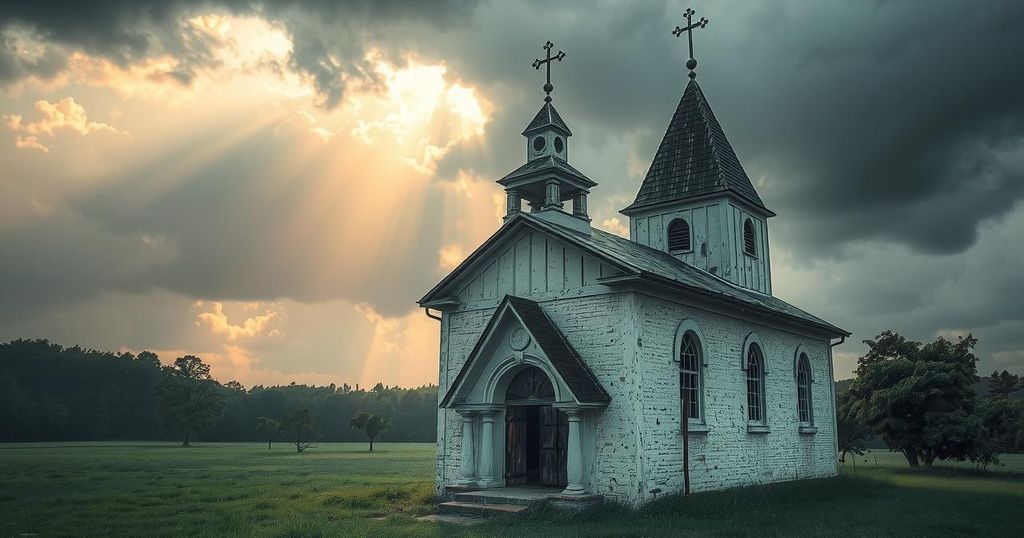Increasing Violence Against Religious Minorities in Bangladesh Sparks Global Concern

A press conference held by the Bangladesh Hindu Buddhist Christian Unity Council in Dhaka has highlighted the alarming rise in violence against religious minorities in Bangladesh. This violence is characterized by physical attacks and systemic discrimination in employment and education. Despite international treaties ratified by Bangladesh, there is a call for increased global advocacy and action to protect these vulnerable communities amid rising extremism.
On January 30, the Bangladesh Hindu Buddhist Christian Unity Council convened a press conference in Dhaka, outlining the escalating violence against religious minorities in Bangladesh. This critical information has received insufficient attention from international media, leading to a significant lack of awareness within the global community regarding the plight of these groups.
The situation for Christians, Hindus, and other religious minorities in Bangladesh has become increasingly dire. Reports indicate a disturbing rise in extremism, resulting in violent acts aimed at these communities and their places of worship. Discrimination is also pervasive, manifesting in restricted access to employment, education, and justice for these minorities.
Despite Bangladesh’s ratification of vital international human rights treaties, including the Universal Declaration of Human Rights, the government has faced criticism for not adequately protecting its religious minorities. This systemic failure raises serious concerns about the current state of human rights in the nation.
In response to these issues, civil society initiatives like the “Demonstration for Peace” were held in Rome on February 3 to draw attention to the challenges faced by minorities in Bangladesh. Senator Giulio Terzi di Sant’Agata emphasized the need for international advocacy in addressing these urgent human rights concerns.
Rights groups attribute the increase in sectarian violence to extremist factions aiming to marginalize religious minorities in Bangladesh. Many victims have reported a lack of protection from law enforcement, delays in justice proceedings, and widespread impunity.
Since August, there have been targeted attacks on religious and ethnic minorities, with homes, worship sites, and businesses being attacked while the state remains largely silent or dismissive. Advocacy for a stronger legal response and better protection measures has become essential.
International organizations, including the United Nations and Amnesty International, have called on the Bangladeshi government to take immediate action to safeguard religious minorities. There is a concerted effort from advocacy groups for stricter enforcement of anti-religious violence laws and improved security for vulnerable communities.
Himanshu Gulati, a Member of the Nordic Parliament, stated, “We all, both as human beings and leaders in our respective countries, should stand up for justice and protection of fellow humans when they are attacked because of their religion and identity, regardless of where in the world they might live.”
Efforts are underway to implore the international community to impose diplomatic and economic pressures on Bangladesh to fulfill its commitments to human rights and religious freedom. Increased awareness and proactive measures are essential to prevent further violence against religious minorities.
The recent demonstrations and reports highlight a concerning trend of rising violence against religious minorities in Bangladesh. Despite the country’s commitment to international human rights conventions, the reality on the ground reflects significant failures in protecting these communities. This situation necessitates global attention and advocacy to address the systematic discrimination and violence perpetrated against religious minorities, particularly as extremists seek to marginalize them further.
In summary, the ongoing violence against religious minorities in Bangladesh poses a grave challenge to human rights. Calls for action from both local and international entities have underscored the need for immediate intervention to protect these communities. Enhanced global awareness, diplomatic measures, and civil society actions are critical to fostering an environment of safety and equality for all citizens, regardless of their religious identity.
Original Source: economictimes.indiatimes.com







